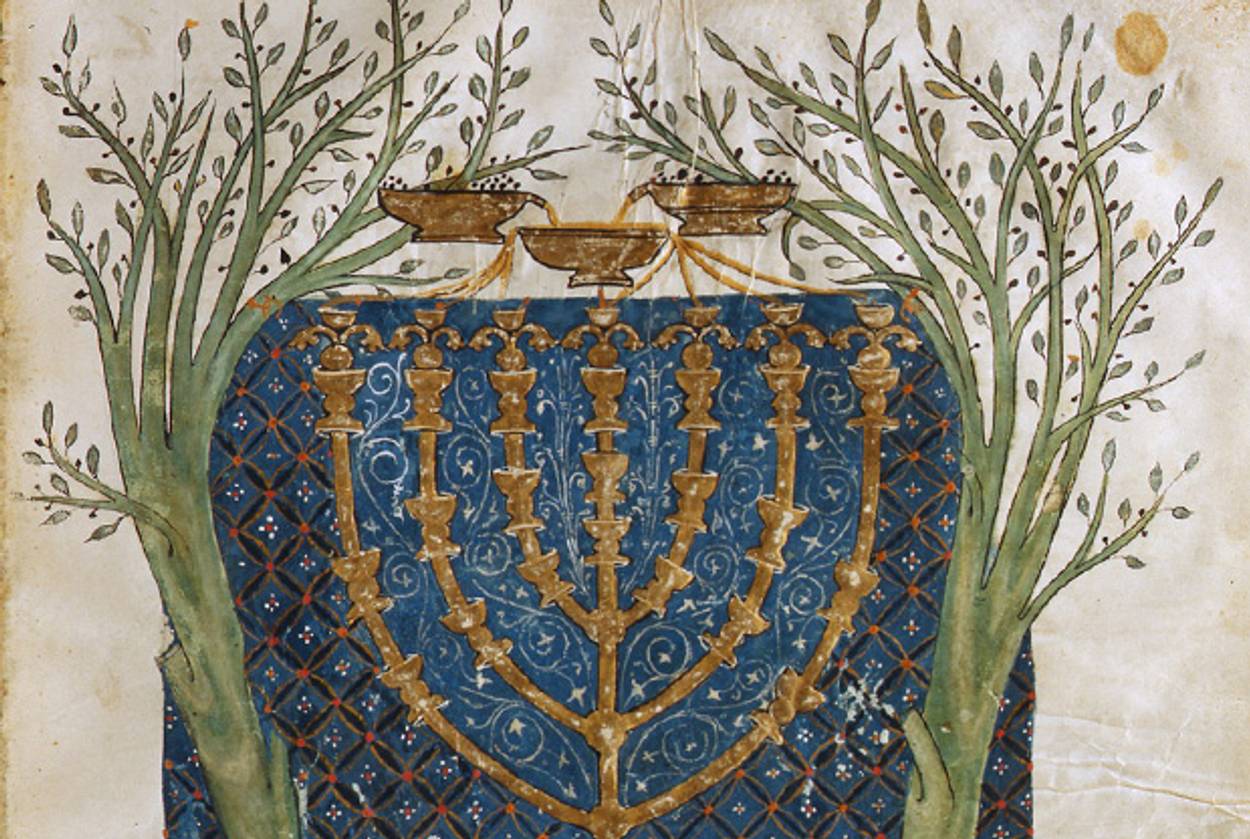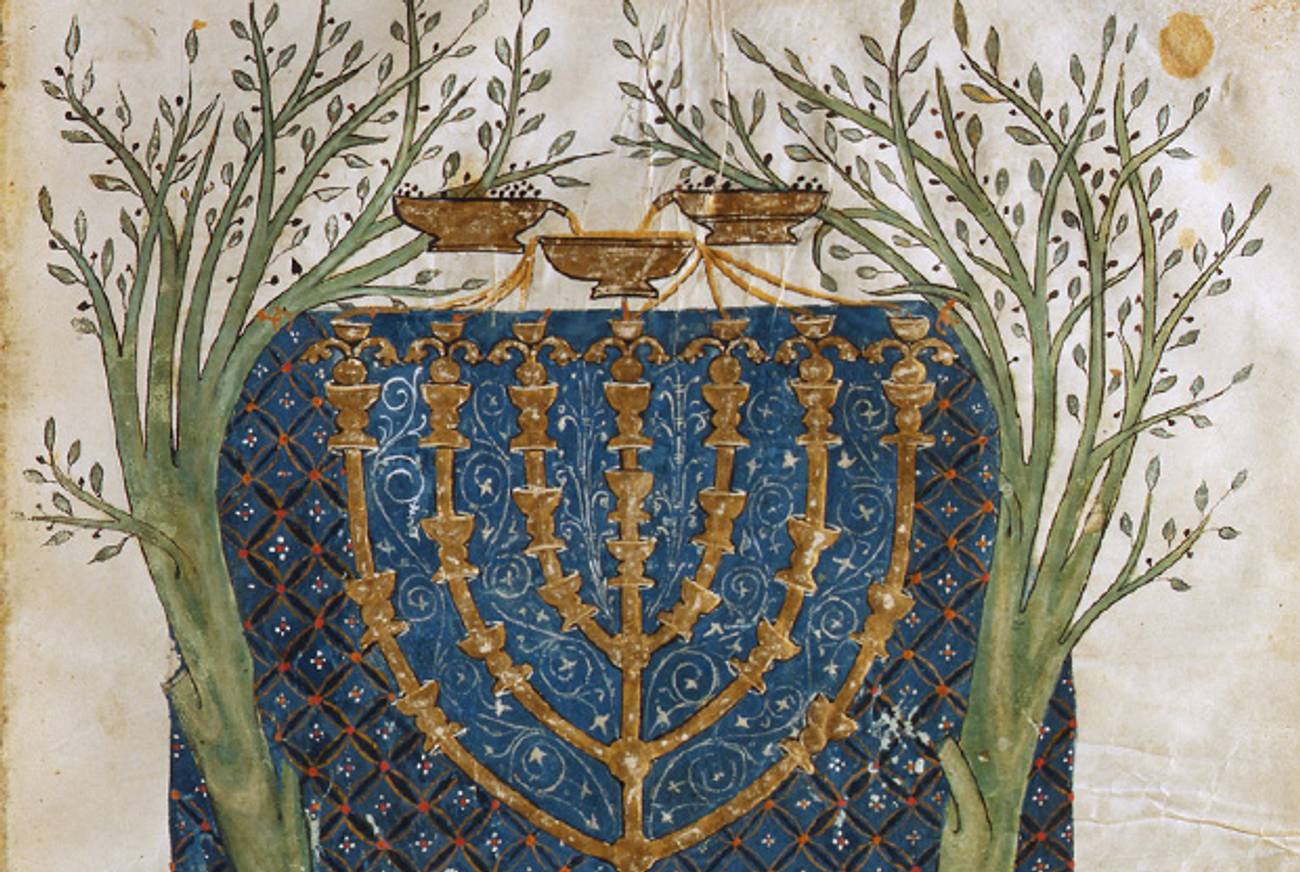Reading the Bible With My Father
A father-daughter literary experiment doesn’t go exactly as planned




In 2008, a few months after my daughter was born, I suggested to my dad that we read the Bible together. It wasn’t that I was religious; up to that point, I’d had virtually no Jewish education, aside from an early attempt by my father to teach each of his three daughters Hebrew (an exercise in frustration for all involved). He, on the other hand, was filled with Jewish learning. Though in his twenties he dropped out of rabbinic school after just a few weeks, instead becoming a lawyer and then a law professor, the shelves of his study in our house had always been heavy with books of Jewish history, theology, and literature. And for as long as I can remember, he’s been part of a Jewish book group which my sisters and I affectionately refer to as “Jew Group.” Growing up, I didn’t know what they read in that group, but I was pretty sure it was weighty, impenetrable stuff.
So no, I wasn’t religious. But now that I was embarking on raising a child of my own, it suddenly seemed important that I at least become familiar with the foundational texts of my religion. It also seemed like a good way to connect with my father, a desire that, at least for me, took on new urgency when I became a parent myself. Besides, I was on maternity leave; time to kill, right?
My dad was delighted with the idea. He sent me a copy of the Jewish Publication Society’s translation, and, with the start of the Jewish New Year, we began reading the weekly parasha. I set up a blog so that we, along with any other family members who wanted to participate, could share our thoughts. The blog’s log-in process for posting comments bedeviled my father, so he’d email his comments to me to post on his behalf.
We got off to a good start. Genesis, Exodus, what’s not to like? But then, Leviticus. Oy. My enthusiasm for the project began to flag. Maternity leave was ending, and there were many things I needed and wanted to do with my precious free time. Reading rules about burnt offerings and slaughter protocol was not among them.
I think I gave up somewhere around Vayikra. My father, bless his heart, made it to the very end. If I look back, my inbox from that time is filled with emails from him with subject headings like “Acharei Mot/K’doshim,” replete with his reflections and erudition. To my great shame, I confess I have not read them all.
But it gets worse. My father, it turned out, had never actually read the full five books of Moses before, though he’d parsed parts of them with rabbis, scholars, and anyone else who showed an interest. Now, faced with the entire text, he discovered that much of it was not to his liking. Some parts were too violent, others overly didactic. It seemed that with this project I had inadvertently killed two birds with one stone—my own hunger for, and my father’s love of, Jewish learning.
Fortunately, that has not proved to be the case. The fact is, for my father, a love of Jewish books was never about the book, though certainly it informs much of what he has spent all these years mining, for wisdom and insight and a sense of connection. As for me, I no longer consider the Torah an unreadable book (though, as you now know, I have yet to read it). It’s just one of many books on my father’s shelves, some of which I hope to read, some of which I’ve already read, and some of which I gave him to him myself. (After all, at this point, Jewish books is what I do.) They include many of the titles on this list. Maybe it’s time to start my own Jew Group.
Related: 101 Great Jewish Books: The Bible
Julie Subrin is Tablet Magazine’s executive producer for audio.